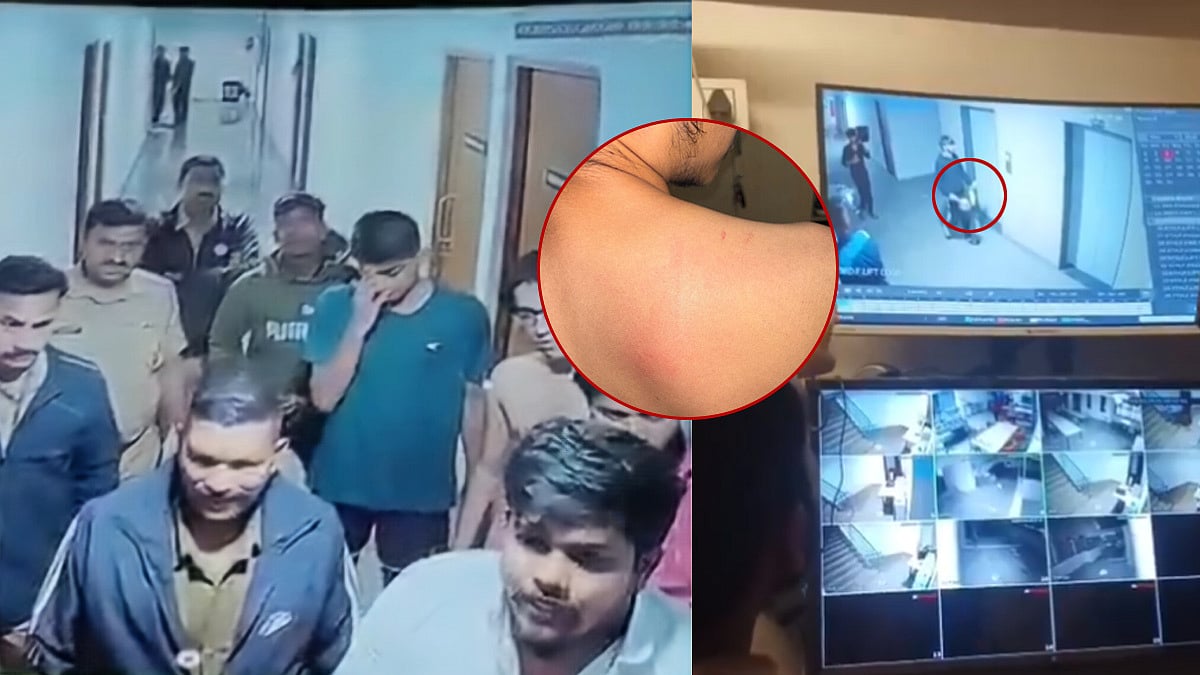16-year-old Ameesha* wasn’t being social lately. She was spending more time on the phone than usual. And if anyone touched her phone, she was jumpy and snatched it. The reason being was her constant chat with a man called Amey on Facebook. Amey wasn’t known to Ameesha personally. She came to know him through facebook after she accepted his friend request. After talking to him for weeks together, Ameesha started to feel emotionally closer to him and began trusting him. After a while when Amey asked her to share pictures of herself in a compromised way, though she hesitated in the beginning. she eventually sent it to him. Then when he asked her to meet him at his apartment, even though she didn’t feel very comfortable, she went to see him.
It’s been two weeks since she met him, Ameesha has distanced herself even more from her friends and family. She seems to be very fidgety, worried and unhappy. She now jumps when the phone rings and quickly rushes out of the house as though something urgent has come up. Could it be Amey? Why is he calling her? Though she is not happy, why is she bound to go? Has she been trapped?
Ameesha is one of the many thousands of girls who have fallen prey to cybersex traffickers. Human trafficking is one of the most prominent crimes in India. However, despite that, it is also one of the most neglected crimes in India. In 2016, more than 15,000 people were trafficked, out of which 70 percent of them were women, as per the latest data made available by the National Crime Records Bureau (NCRB). And, what is even more shocking is that 31 percent were mirrors. State-wise, West Bengal reported the most number of cases of child trafficking, followed by Rajasthan and Uttar Pradesh.
Digitalisation has intrinsically changed how we communicate and bond with people now. For better or for worse, it is here to stay. Technology has made traffickers ‘faceless’, wherein it has become even more difficult to identify them. In the paper, ‘Human Trafficking and Technology: A framework for understanding the role of technology in the commercial sexual exploitation of children in the U.S.’, Danad Byod explains that just as technology is used for advertising products and skills, it is also a place to browse victims without even them knowing that. They spend months gaining the trust, bonding with the victims and grooming them. They purchase or collect personal data on the victim which they use to keep them in fear and shame and use it extort for sexual favors. It’s more dangerous because traffickers can be anywhere and jurisdiction becomes an issue when it comes to dealing with the crime. Secondly, digital footprints stay until and unless rewritten.

There has been a rise in a number of cases in cybersex trafficking. Though there is no empirical data on it as of now, evidence suggests so. The rise has been due to demand. Trafficking is a demand-based industry. As the demand increases, so does the supply of victims. Victims are seen as dehumanized objects purely supplied for consumption (sexual or forced labour). This can’t be curbed if demand goes down.
Understanding the economic dynamics, Missing Link Trust launched one of its kind games ‘Missing: Game for A Cause’ to sensitize the public about trafficking and to humanize the victims.

The game, which is available on android Playstore and App store for free, is a role-playing game which puts players in the shoes of the victim and allows them to experience what a ‘missing girl’ goes through when she is trafficked into the cruel world of prostitution, a world into which millions of girls are lost every year. Players assume the role of the missing person, making choices and assessing risks for themselves to find their way to freedom.
The game has been able to develop empathy amongst its users. It has over a million organic downloads across the world. And, we want vernacular India to play. Today there are over 500 million smartphone users in India and 70 percent of them use vernacular language. Keeping this in mind, the Missing game was launched in 12 vernacular languages, making it a powerful tool in raising awareness about trafficking amongst both rural and urban populace.
Missing believes that ‘why wait for a girl to be trafficked to save her’. For combating trafficking, especially cybersex trafficking, awareness is the first and most crucial step. Awareness leads to prevention. Nowadays, Indian youth spends on average four hours online daily. The more connected we are, the more vulnerable we are. We cannot instill fear but we can empower the youth by making them aware about the measures to protect themselves.
In line with the Missing Link Trust mission to understand juvenile violence amongst youth and rising demand amongst traffickers, it conducted a study. We had sessions and roadshows in the last three-four months covering schools and junior colleges in tier 2 regional pockets of India covering nine states. During sessions and roadshows, we covered more than 6500 students and found that many of them were demonstrating risky behaviour on social media platforms. 67 percent of them agreed to receiving friend requests from strangers on social media regularly and 44 percent believed it posed a safety risk. But, at the same time, around 46 percent of them were accepting the friend request from strangers.

While youth is exposed to online threats, they are also vulnerable to manipulative sexual explicit material or pornography which is directly associated with an increase in demand for sex trafficking. 49 percent students said they have come across sexually explicit material while browsing the internet and 42 percent (both girls and boys) admitted that they choose to look at it. However, there is a silver lining. Though most of the youth was unaware about link between between pornography and sex trafficking, 63 percent said they will stop watching pornography if they knew there is a correlation.
Today youth is the foundation block on which our future society stands, their sensitisation on the role they play to stop the abuse of a girl will be crucial to stop the rising demand for trafficking victims. They have to be made aware about their potential to prevent this crime and help others from falling as a prey to the crime. Only with awareness and sensitisation, demand can go down which will curb trafficking.





